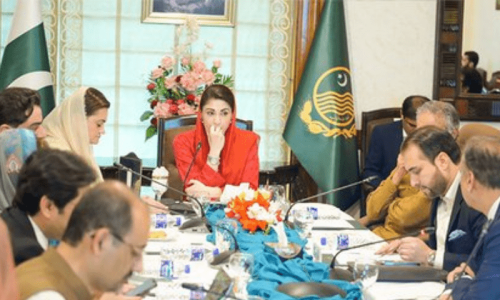
ISLAMABAD: The Australian High Commission and UN Women hosted a dialogue on the Punjab Protection of Women against Violence Act 2016 which is the first legislation of its kind in South Asia to have its own implementation structure in the form of violence against women centres (VAWC).
Australia is currently the co-chair of Inter Agency Gender and Development Group along with the UN Women, which has been working to promote gender equality in Pakistan since 1985.
Margaret Adamson, the Australian high commissioner, said: “Violence against women is a very serious and important structural problem across the world. I am reassured to be standing amongst colleagues committed to advancing the rights of women and promoting gender equality in Pakistan and globally.”
The panel discussion took place between Salman Sufi, senior member Chief Minister’s Special Monitoring Unit (SMU), FauziaViqar, chairperson of Punjab Commission on the Status of Women, and Hina Jillani, Supreme Court lawyer and human rights activist.
Salman Sufi presented the salient features of the SMU which since its inception has initiated reforms on matters of excise and taxation, transport, police, social welfare and others.
The Punjab Protection of Women against Violence Act 2016 is particularly a well-intentioned piece of legislation and South Asia’s first VAWC is envisioned as a converging point for all essential services to ensure justice delivery, including police reporting, registration of criminal cases, medical examination and collection of forensic and other evidence.
The centres will serve as police stations, medical facilities and rehabilitation centres.
Hina Jillani said the government had the infrastructure already in place in each district in the form of Darul Amans. She said the focus needed to be on building better minds through sensitisation and trainings.
While the Protection Act is laudable, it is nevertheless an Act that comes into effect after violence has occurred and an aggrieved person is able to go to the court. This does not prevent the incidence of violence against women.
Salman Sufi said: “The first VAWC being constructed will be the headquarters and is scheduled to be inaugurated in September. In other districts, the existing Darul Aman buildings will be used.”
FauziaViqar said: “We must take into consideration the broader aspects of violence against women which have come to light in all our work. Recently, the commission I represent conducted a data collection exercise which showed a considerable disparity in all the seven areas we looked at between men and women in their representation and access to rights. I feel that this underpins violence against women.”
She added: “It starts from the usage of health facilities and the education of women. This is about taking a lifecycle approach to the eradication of violence. It starts with health and education and goes on to the registration of the birth of a girl child. From education it goes on to employment and to family rights. We must mainstream access to rights for women.”
She said the use of Darul Amans was not widespread for numerous reasons. The VAWCs are a great initiative and the 36 existing Darul Amans in Punjab need to be strengthened so they all become VAWCs.
The perception of the Darul Amans is not positive. Women who are in an abusive situation and want to empower themselves will probably not go there as the perception of women who enter them is negative and their mobility is highly restricted if they enter the Darul Aman.
Nadeem Ashraf, the secretary ministry of human rights, said: “We need to create mass awareness to bring a cultural change in men. What we know about violence against women is only the tip of the iceberg – a lot more is unreported.”
Jamshed Kazi, the country representative of the UN Women, said: “There have been mentions of how few women are in the public sector particularly in the police, which has to change. This is also about changing the mindset – if you don’t have more women in those positions of authority you will not see a change. Women’s leadership initiatives are important.”
He said a lot of people had not heard about these positive initiatives. “What they have heard about is the Council of Islamic Ideology (CII) pronouncement of lightly beating your wife.
This undermines the image of Pakistan and sets back a lot of the positive initiatives. We need to hear more about the inspiring stories such as the Punjab Protection of Women against Violence Act,” he added.
Published in Dawn, July 22nd, 2016













































